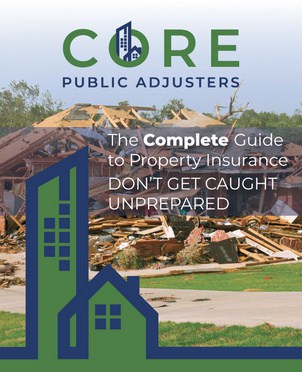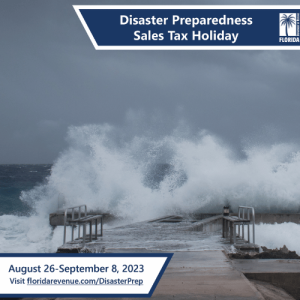In recent years, Fort Lauderdale has taken measures to address flooding, including implementing infrastructure upgrades such as seawalls, stormwater pumps, and raising roads to mitigate the impact of flooding. However, even the best preventative measures couldn’t have stopped the flooding that happened in Fort Lauderdale on April 12, 2023. The rainiest day in its history to date, Fort Lauderdale experienced 26 inches of rain in a 24 hour period – a 1-in-1,000 rainfall event. The flood waters damaged homes forcing some to evacuate. Businesses were impacted, too. The Fort Lauderdale flood temporarily shut down the Fort Lauderdale-Hollywood Airport and businesses in the area.
With so many of our local residents impacted by this historic rainfall, we’d like to talk to you about flood policies, what to expect when an adjuster comes out to your property, and some tips for insurance claims.
First, in order for your insurance to cover your flood damage, you need to be covered for that type of damage. Flood damage isn’t covered by your typical property insurance policy, but rather a separate flood policy. Flood policies cover damage caused by rising water, whether it’s from a river, a storm surge, or heavy rains. They also cover damage caused by mudslides and other flood-related hazards.
There are private flood policies and there are FEMA policies. A private flood policy is offered by private insurers – for example, from State Farm, Allstate, Farmers Insurance and the like. Private flood policies are not as common as FEMA flood policies. FEMA is the federal agency that administers the National Flood Insurance Program (NFIP). The NFIP is a government-backed program that provides flood insurance to homeowners, renters, and businesses, and is the most common flood policy.
With either policy, it’s important to report the damage as soon as possible so that your insurance company schedules the next step. That is, scheduling an insurance adjuster to assess the extent of your damage and value the cost of your damage.
What to Expect When an Adjuster Comes Out to Your Property
The insurance adjuster will take measurements and photos of the damage, and they will also interview you about the damage. The insurance adjuster will then use this information to determine the extent of your loss and the amount of your claim. Because this process can be complex, you’ll want to stay on top of the damage estimate to ensure you’re getting a fair evaluation of your damage. This is where hiring a public adjuster, such as CORE Public Adjusters, may be worth it. You may want not only the insurance company to evaluate your damage but also an experienced third party to evaluate your damage, too.
According to FEMA, it can take anywhere from four to eight weeks to finalize and pay a standard flood insurance claim. The claim payment check will be made out to you and/or your mortgage company/lender, which require additional sign offs. However, the time it takes to file a flood claim with FEMA can vary depending on several factors, including:
- The severity of the flooding
- The number of claims that FEMA is receiving
- The complexity of your claim
- Your cooperation with FEMA
Tips for Navigating the Insurance Claim Process
First and foremost, you’ll need to be as detail-oriented as possible. Follow all the deadlines and guidelines your insurance provider has for submitting claims. For example, you will want to provide specific details about the loss. This includes the date, time, and location of the loss, as well as a description of the damage. Gather documentation to support your claim. This may include photos of the damage, receipts for repairs, or estimates from contractors. Be as accurate and detailed as possible when providing information to your insurance company, and gather as much documentation as possible to support your claim. Here, too, a professional public adjuster, can be of great value, helping you with every little detail and supporting document.
If you choose to go at it alone, be sure to read these important articles we’ve written so that you can prepare properly for your insurance claim experience:
- Why Your Insurance Claim Payout Will Be Too Low: Problems Associated with Estimation Software
- Top Five Problems You May Encounter With Your Insurance Company when Filing a Claim
- Insurance Company Treating You Unfairly? You’re Not Alone.
Check for Mold and Water Inside Your Walls
One last thought. You may have property damage, even if it was not caused by flooding (i.e., rising water). Water can enter your home in several ways. Heavy winds can create rain patterns that shoot into cracks and crevices of your home, causing water damage inside your walls. Any area of your home can be prone to developing mold if it gets wet. Check your walls for moisture and mold. If you find damage because of rain, not rising water (i.e., flooding), then contact the insurance company that covers your property insurance policy, not the company that covers your flood policy.
CORE Public Adjusters is here to answer questions or concerns you have about your property damage, insurance policy, or navigating the insurance claim process. We will also give you a second opinion of your damage estimate that was estimated by your insurance provider. Contact us today to set your mind at ease and set your claim straight. Why hire CORE Public Adjusters? Read our top 10 reasons.







